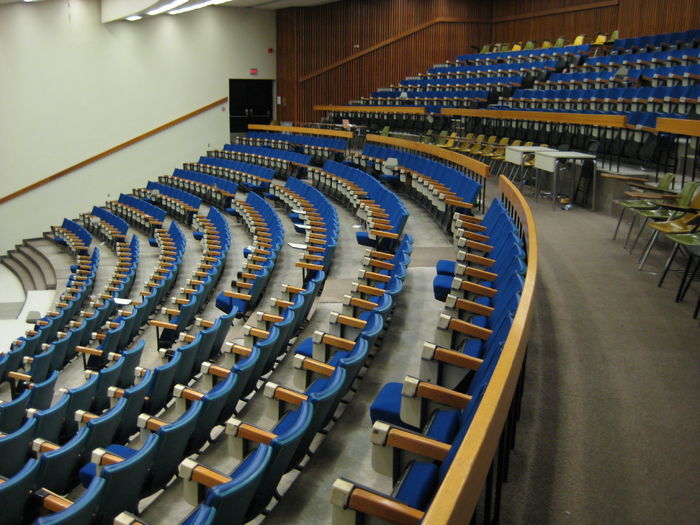Calls for essay mills to be banned in light of move to online learning
Varsity spoke to faculties and colleges across the University about the difficulties with plagiarism and academic support due to the move online

Earlier this month (10/02), former universities minister, Chris Skidmore, submitted a private bill to ban the operation and advertisement of ‘essay mill’ services in the UK. ‘Essay mills’ are businesses that produce original pieces of writing for students who pay for these services.
Skidmore cited data from the Quality Assurance Agency for Higher Education (QAA), showing that essay mill services have increased in the UK from 635 in June 2018 to at least 932 sites as of present. He warned that, with the shift to remote learning, students are “increasingly becoming prey to essay mills”, being “away from on-campus welfare and support”.
The University of Cambridge defines contract cheating as a form of academic misconduct, outlined under the ’Rules of Behaviour for Registered Students and Formerly Registered Students’ within the University’s constitutional framework. The University states that students are responsible for upholding academic integrity and being familiar with these conventions, stressing that “not knowing or forgetting about the rules or their consequences is not a justification for not following them”.
The University has employed specialised software, such as Turnitin UK, to detect plagiarism in submitted work. Work suspected of plagiarism will be investigated, and students found guilty of academic misconduct may fail their examinations or face suspension.
Dr Robert Hunt, Senior Tutor at Christ’s and Dr Philip Johnston, Senior Tutor at Hughes Hall, told Varsity that instances of students cheating via essay mills had not surfaced at their colleges, and that a rise in cheating had not been observed with the shift to remote learning.
Dr Richard Partington, Senior Tutor of Churchill College, commented that instances of plagiarism are “still relatively rare, and mostly a consequence of naivety rather than deliberate cheating”.
Dr James Norris, Head of the Department of Pure Mathematics and Mathematical Statistics, told Varsity: “[The Department] is very aware, as are (our) students, of the potential to gain an advantage by unfair means in a Maths exam”. Hence, there have been consistent “efforts to make exams as secure as possible from cheating”.
The concern over the increased use of essay mill services is related to the broader issue of providing academic support with remote learning. Johnston raised “isolation, internet connectivity and time-zone issues” as some of the challenges students face.
The shift to remote learning has also placed pressure on academic staff. Hunt told Varsity: “The main challenge in providing academic support to students at the moment is that many academic staff are themselves overwhelmed by the situation. They are, however, managing to do so.”
Partington also mentioned the increased difficulty in identifying students who are struggling compared to if they were physically present on campus. Additionally, “despite the highly laudable effort of the collegiate University’s libraries to make as much material as possible available online”, there still might be “asymmetric access to learning materials”.
On a positive note, Partington expressed that classes and seminars delivered via online platforms such as Zoom may be more effective in promoting student participation, observing that “students seem to have been more willing to engage and ask questions”.
There have been previous attempts at banning essay mill services in the UK. In 2018, The Russell Group, alongside 45 Vice-Chancellors and leaders in institutions wrote to the Secretary of State for Education to express concern over the increasing use of essay mills in contract cheating.
The letter stated that “essay mills undermine the integrity of the UK Higher Education and are unfair to the vast majority of honest, hard-working students”, calling for regulation of these services. In 2019, Lord Storey, Liberal Democrat education spokesman, submitted a private bill to ban essay mill services. In the same year, QAA also published a paper arguing for, and proposing legislative structures that can be adopted to ban essay mills.
In a statement to Times Higher Education, Skidmore stressed that it is more crucial than ever to ban essay mills.
 News / Cambridge student numbers fall amid nationwide decline14 April 2025
News / Cambridge student numbers fall amid nationwide decline14 April 2025 News / Greenwich House occupiers miss deadline to respond to University legal action15 April 2025
News / Greenwich House occupiers miss deadline to respond to University legal action15 April 2025 Comment / The Cambridge workload prioritises quantity over quality 16 April 2025
Comment / The Cambridge workload prioritises quantity over quality 16 April 2025 Sport / Cambridge celebrate clean sweep at Boat Race 202514 April 2025
Sport / Cambridge celebrate clean sweep at Boat Race 202514 April 2025 Features / The TikTok college: using social media in access and outreach15 April 2025
Features / The TikTok college: using social media in access and outreach15 April 2025






